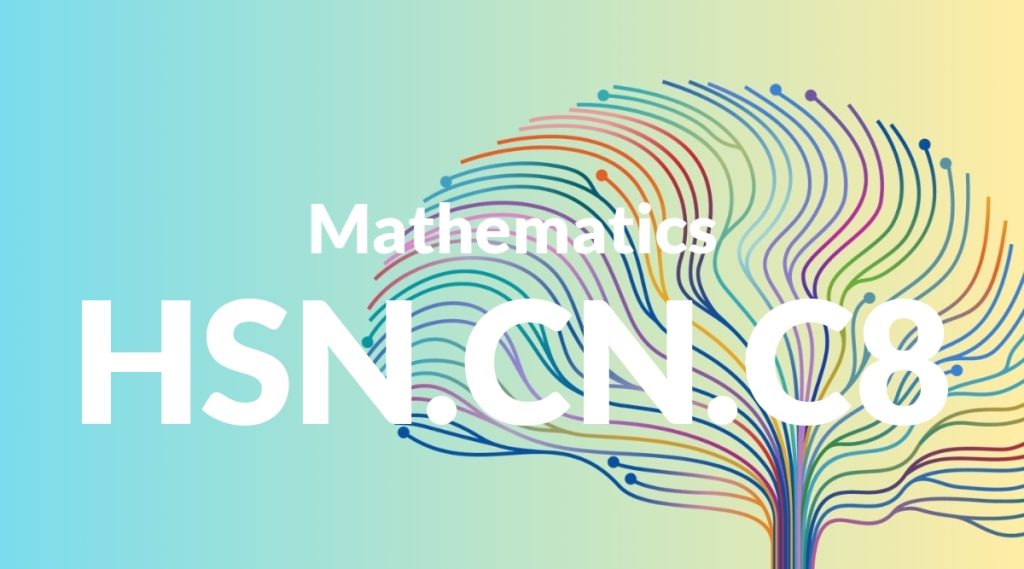Standard: HSN.CN.C8 – (+) Extend polynomial identities to the complex numbers. For example, rewrite x² + 4 as (x + 2i)(x – 2i).
Grade level: High School: Number and Quantity
Subject: Mathematics
Domain: The Complex Number System
Teacher Overview
This standard focuses on extending polynomial identities to include complex numbers, which is crucial for solving polynomials that do not have real roots. Understanding this concept allows students to tackle more complex mathematical problems and prepares them for advanced studies in mathematics and related fields. Students should be comfortable with polynomial identities, factoring, and basic complex number operations, such as addition, subtraction, multiplication, and the concept of the imaginary unit ‘i’.
Mastering this standard will enable students to solve higher-degree polynomial equations and apply complex number operations in advanced mathematics and engineering fields.
Common Misconception 1
A common misconception is that complex numbers cannot be used in polynomial factoring. This is incorrect because complex numbers provide a complete set of solutions for polynomial equations, including those without real roots.
Intervention 1
To address this misconception, teachers can provide step-by-step examples showing how complex numbers are used in polynomial factoring and offer practice problems that reinforce this concept.
Common Misconception 2
Another misconception is that the imaginary unit ‘i’ behaves like a regular variable. This is incorrect because ‘i’ has unique properties, such as i² = -1, which do not apply to regular variables.
Intervention 2
Teachers can emphasize the unique properties of ‘i’ through targeted exercises and examples that highlight how ‘i’ interacts with other numbers and variables.
Prerequisite Knowledge
Students should have a solid understanding of polynomial identities, factoring techniques, and basic complex number operations before tackling this standard.
Subsequent Knowledge
After mastering this standard, students will be able to solve higher-degree polynomial equations and apply complex number operations in advanced mathematics and engineering fields.
Instructional Activities
- Create polynomial equations and solve them using complex numbers.
- Group activities that involve rewriting polynomials with complex roots.
- Interactive simulations that demonstrate the properties of complex numbers.
- Real-world problem-solving scenarios involving complex numbers.
- Quizzes and practice tests focused on polynomial identities and complex numbers.




